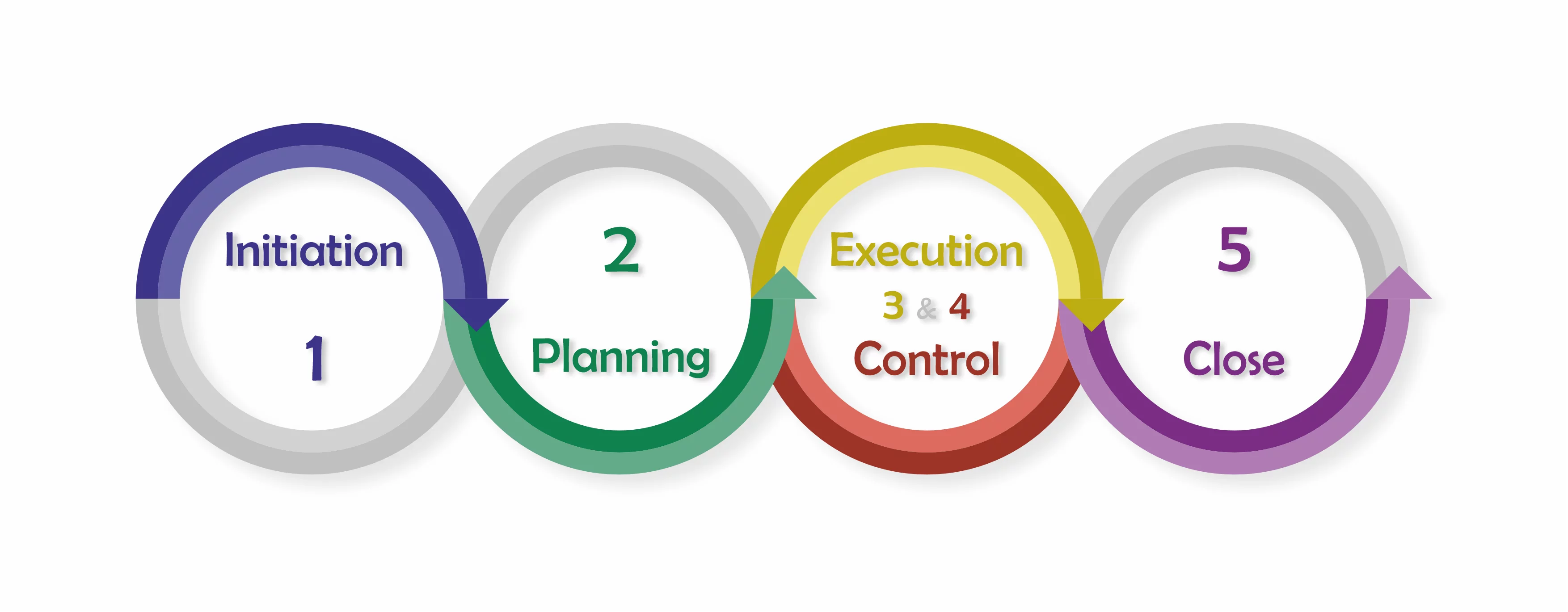New Project: Success Guide 2024
Does the success of any endeavor truly hinge upon the rigorous application of a single, often overused word: "project"? The very essence of progress, innovation, and achievement is intertwined with the meticulous planning, execution, and management that this term encapsulates. From the grandest of engineering feats to the simplest of personal goals, the "project" paradigm shapes our world.
The term "project," as a noun, denotes a specific and temporary endeavor undertaken to create a unique product, service, or result. It's a bounded activity with a defined beginning and end, constrained by scope, resources, and time. Whether it's the construction of a skyscraper, the development of a new software application, or the organization of a community event, each "project" shares these fundamental characteristics. The word also functions as a verb, signifying the act of planning, designing, or estimating something for the future. We "project" future revenues, "project" timelines, and "project" outcomes, all in the hope of steering our endeavors toward success. The dual nature of "project" - as both a thing and an action - underscores its importance in our vocabulary of achievement.
The life cycle of a "project" typically involves several distinct phases: initiation, planning, execution, monitoring and controlling, and closure. During initiation, the "project" is formally authorized, and its objectives are defined. The planning phase involves developing a detailed roadmap, outlining tasks, assigning resources, and establishing timelines. Execution is where the "project" team puts the plan into action, performing the necessary work to deliver the intended outcome. Monitoring and controlling are ongoing processes, ensuring that the "project" stays on track and that any deviations are addressed promptly. Finally, closure marks the formal completion of the "project," including documentation, final approvals, and the release of resources.
- Discover Cutidotantoz Ltd Products Quality Innovation
- Serenity Cox Untold Truths Bio Age More Exposed
Effective "project" management is crucial for ensuring that "projects" are completed successfully, on time, and within budget. It involves applying knowledge, skills, tools, and techniques to "project" activities to meet the "project" requirements. "Project" managers play a vital role in leading and coordinating the "project" team, managing risks, and communicating with stakeholders. They are responsible for ensuring that the "project" aligns with the organization's strategic objectives and that the "project" delivers value to the business. The skillset required is broad, encompassing leadership, communication, problem-solving, and a deep understanding of the specific "project" domain. A good "project" manager is proactive, anticipating potential challenges and developing mitigation strategies.
The scope of a "project" defines the boundaries of what is included and excluded. A well-defined scope is essential for preventing scope creep, which refers to the uncontrolled expansion of the "project's" scope after the "project" has begun. Scope creep can lead to delays, cost overruns, and ultimately, "project" failure. To manage scope effectively, "project" managers use techniques such as requirements gathering, scope definition, and change control. Requirements gathering involves documenting the needs and expectations of stakeholders. Scope definition involves creating a detailed description of the "project" deliverables. Change control involves establishing a process for managing changes to the "project's" scope, ensuring that all changes are properly evaluated and approved before being implemented.
Risk management is another critical aspect of "project" management. All "projects" involve some degree of risk, which can be defined as an uncertain event or condition that, if it occurs, has a positive or negative effect on the "project's" objectives. "Project" managers must identify, assess, and respond to risks throughout the "project" life cycle. Risk identification involves brainstorming potential risks and documenting their characteristics. Risk assessment involves evaluating the likelihood and impact of each risk. Risk response involves developing strategies to mitigate or avoid negative risks and to exploit positive risks. Common risk response strategies include risk avoidance, risk mitigation, risk transfer, and risk acceptance.
- Who Is Olwyn Harper Berkeley A Fascinating Story Unfolds
- Hdhub4u Watch Hollywood Hindi Dubbed Movies Online Guide
Communication is paramount to "project" success. "Project" managers must communicate effectively with stakeholders, including the "project" team, sponsors, customers, and other interested parties. Communication should be clear, concise, and timely. "Project" managers use various communication methods, such as meetings, emails, reports, and presentations, to keep stakeholders informed of the "project's" progress. Effective communication helps to build trust, manage expectations, and resolve conflicts. A communication plan should be developed early in the "project" to outline how communication will be managed throughout the "project" life cycle. This plan should identify the key stakeholders, their communication needs, and the methods that will be used to communicate with them.
The use of technology plays an increasingly important role in "project" management. "Project" management software can help "project" managers to plan, track, and manage "projects" more effectively. These tools can automate tasks such as scheduling, resource allocation, and reporting. Collaboration tools can facilitate communication and collaboration among "project" team members. Data analytics tools can provide insights into "project" performance, helping "project" managers to identify potential problems and make data-driven decisions. The selection of the right technology depends on the specific needs of the "project" and the organization.
The term "project" extends beyond the realm of formal business and organizational settings. It is equally applicable to personal endeavors and life goals. Planning a vacation, writing a book, learning a new skill, or renovating a home all can be approached as "projects," benefiting from the same principles of planning, execution, and management. By framing personal goals as "projects," individuals can gain a greater sense of control and increase their likelihood of success. Breaking down larger goals into smaller, manageable tasks, setting deadlines, and tracking progress can transform daunting challenges into achievable "projects." This approach fosters a sense of accomplishment and motivates individuals to continue striving towards their objectives.
In the contemporary business landscape, the ability to manage "projects" effectively is a critical competitive advantage. Organizations that excel at "project" management are better able to innovate, adapt to changing market conditions, and deliver value to their customers. "Project" management skills are highly sought after by employers across a wide range of industries. Professionals with "project" management certifications, such as the PMP (Project Management Professional) certification, are often in high demand. Investing in "project" management training and development can significantly enhance an individual's career prospects and contribute to organizational success. The "project" management discipline is constantly evolving, with new methodologies and techniques emerging to address the challenges of today's complex "project" environments.
The success of any "project" is contingent upon the quality of the team involved. A high-performing "project" team is characterized by strong collaboration, effective communication, and a shared commitment to the "project's" goals. "Project" managers play a critical role in building and motivating "project" teams. They must foster a culture of trust and respect, encourage open communication, and provide opportunities for team members to develop their skills. Effective team building involves selecting the right individuals for the "project," defining clear roles and responsibilities, and providing ongoing support and feedback. A cohesive "project" team is more likely to overcome challenges, adapt to changes, and deliver exceptional results.
Ethical considerations are also important in "project" management. "Project" managers have a responsibility to act ethically and with integrity in all their dealings. This includes avoiding conflicts of interest, protecting confidential information, and ensuring that "projects" are conducted in a socially responsible manner. Ethical behavior builds trust and credibility, which are essential for long-term success. Many "project" management organizations have codes of ethics that provide guidance to "project" managers on ethical issues. Adhering to ethical principles not only protects the reputation of the "project" and the organization but also contributes to the overall well-being of society.
The evaluation of "project" success goes beyond simply meeting deadlines and staying within budget. It also involves assessing the "project's" impact on the organization and its stakeholders. Did the "project" deliver the expected benefits? Did it improve efficiency, increase revenue, or enhance customer satisfaction? Did it contribute to the organization's strategic objectives? A thorough "project" evaluation should consider both quantitative and qualitative factors. Quantitative factors include financial metrics, such as return on investment (ROI) and net present value (NPV). Qualitative factors include stakeholder satisfaction, employee morale, and the "project's" impact on the organization's reputation. The results of the "project" evaluation should be used to identify lessons learned and to improve future "projects."
The future of "project" management is likely to be shaped by several trends, including the increasing use of agile methodologies, the growing importance of data analytics, and the rise of artificial intelligence (AI). Agile methodologies emphasize iterative development, collaboration, and customer feedback. They are particularly well-suited for "projects" that are complex and uncertain. Data analytics can provide insights into "project" performance, helping "project" managers to make better decisions. AI can automate tasks, such as scheduling and risk management, freeing up "project" managers to focus on more strategic activities. These trends will require "project" managers to develop new skills and adapt to new ways of working. The ability to embrace change and to leverage new technologies will be critical for success in the future of "project" management.
| Category | Information |
|---|---|
| Basic Information | |
| Full Name | N/A (Generic "Project" Concept) |
| Date of Birth | N/A |
| Place of Birth | N/A |
| Career and Professional Information | |
| Profession | Concept central to management, engineering, IT, and many other fields. |
| Industry | Varies greatly depending on the specific application of the "project". |
| Skills | Planning, execution, risk management, communication, problem-solving, leadership. |
| Years of Experience | N/A |
| Certifications | Project Management Professional (PMP), Agile Certified Practitioner (ACP), etc. |
| Education | Varies, often requires a degree in a relevant field (e.g., Engineering, Business, IT). |
| Achievements | Successful completion of various types of "projects," leading to innovation, growth, and problem-solving. |
| References | Project Management Institute (PMI) |
- Find Wasmo Somaliland Telegram Channel Updated
- Brenda Harvey Richie The Untold Story Behind Lionel Richies Ex

Top 6 Project Management Free Tools Edworking Blog

Stockfoto Project manager working on laptop and updating tasks and

The 5 Stages of Project Management Kanbanchi